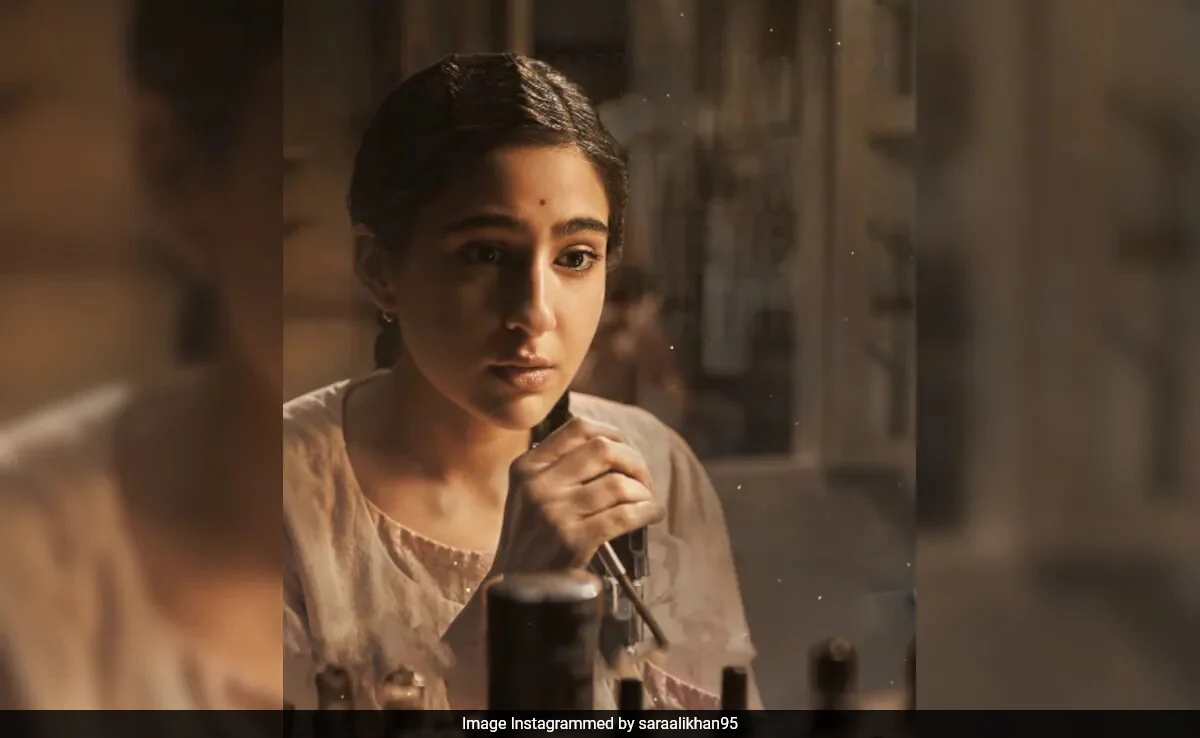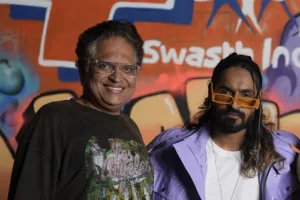
Review of Ae Watan Mere Watan: Sara Ali Khan, who plays the lead role, is just too delicate and porcelain to really capture the ferocious determination of the remarkably doughty woman.
One approaches Ae Watan Mere Watan with caution, for certain Mumbai filmmakers are using history and politics as vehicles of transparent propaganda more and more. Thankfully, it appears that Dharmatic Entertainment and Amazon MGM Studios’ historical thriller is free of agenda-driven bias.
Currently available for streaming on Amazon Prime Video, Ae Watan stars Sara Ali Khan as a freedom fighter in khadi who must defeat the might of the British. As it presents a little-known but significant phase of India’s independence movement on cinema, Mere Watan resists excess.
Ae Watan Mere Watan is anything but a victim of shrill posturing, in contrast to the freedom warriors in the movie who yell slogans, declare their unshakable opposition to colonialism, and oppose a cruel rule. Unfortunately, the film’s admirable restraint in promoting patriotism does not transfer into something more than the sum of its parts.
Although it has parts that instantly appeal in a time when news is in the midst of a lengthy silly season, Kannan Iyer’s film Ae Watan Mere Watan, which was directed, isn’t as impactful as it should have been. Iyer made his feature film debut ten years ago with Ek Thi Dayan, a supernatural horror picture.
Ae Watan Mere Watan, written by Darab Farooqui, centers on a time in the life of independence fighter Usha Mehta. Sara Ali Khan, who plays the lead role, is far too delicate and porcelain to capture the fiery drive of the extraordinarily doughty woman.
Usha Mehta, then just 22 years old, and at odds with her pro-Churchill judge-father (Sachin Khedekar), who sees no reason for the family to side with the Congress, launched a covert radio station in 1942 to spread the word about independence to the populace. She was inspired by Mahatma Gandhi’s “do or die” call as part of the Quit India movement.
Only a small portion of history is covered in the movie. Before the authorities cracked down on Usha and her allies, her disobedience lasted for a few months. She served four years in prison for breaking a World War II radio station prohibition. However, the young girl is unaffected by the possibility of facing consequences or her father’s wrath.
Uday Chandra portrays Gandhi, who makes two scene appearances. The socialist leader Ram Manohar Lohia is the main subject of Ae Watan Mere Watan (Emraan Hashmi makes an extensive guest appearance). As Usha and her friends, Kaushik (Abhay Verma) and Fahad (Sparsh Shrivastava), manage Congress Radio from a covert location and elude the law for as long as they can, the latter’s voice is heard frequently over the radios and elsewhere.
Lohia has never received enough credit in Hindi film. Ae Watan Mere Watan gives the audience access to an important historical fragment that hasn’t received enough attention up to this point by giving him a legitimate pride of position in the Usha Mehta story. Actor Hashmi, who loves to be effortless, gives Lohia depth without using too dramatic techniques.
The acting is heavy enough, yet the film feels like it lacks depth and speed. Ae Watan Mere Watan isn’t quite the cloak-and-dagger drama that it should have been; rather, it’s a thriller in the traditional sense, with chase scenes and action sequences, but it lacks the inherent strength to create real tension and a sense of danger.
The movie compares radio waves to wings. Let your wings spread, Mahatma Gandhi tells his people. Usha plans to use the radio signals she sends “from somewhere in India” to accomplish just that—seek freedom.
Inspector John Lyre of the Mumbai Police, played by Alex O’Nell, is searching for the individuals responsible for the covert radio station. The film’s conclusion, portions of which are disclosed in a short prelude, revolves around a raid on a structure that contains the covert broadcasting setup.
Usha flees down a stairway as a police officer aims a gun at her. The scene switches to the heroine, a 10-year-old girl, learning about the significance of the liberation movement from her instructor in an outdoor school in Surat.
The emphasis is on lines that sound more like speeches than conversational exchanges, and the production is a little stiff. However, a few of Ae Watan Mere Watan’s points are still relevant today and should be mentioned.
Usha claims in one scenario that people are empowered by the news. In response to a complaint from a colleague that the current day’s publications are disseminating lies, she makes the statement. He goes on to say that these information sources have the power to shape our perception of reality. Usha claims that because misleading information is being disseminated through official channels, it is crucial to inform the public of the truth.
In a subsequent scene, Usha and her allies talk about the dangers of andh-bhakti, or blind devotion, using Lohia as an example. Lohia was an idol of Jawaharlal Nehru, but she would never hesitate to criticize him when necessary.
Lohia is quoted once more at another point in the movie to emphasize that fighting a tyrant doesn’t always have to be done with the goal of overthrowing him. Because he is a tyrant, one fights the dictator. AE Watan Patriotism is not presented in Mere Watan as a goal in itself or as a solution to every issue. It transcends the limited scope of what the concept now represents.
AE Watan With an undercurrent of subversion that gives it an edge and elevates it above the chronicle that it is out to build in the service of telling a story about the unsung heroes of India’s liberation struggle, Mere Watan tackles the themes of love and revolution, freedom and unity, truth and pragmatism.
Excellent production design makes sure that historical elements are accurate. The visual palette of the movie has an evocative appeal thanks to director of photography Amalendu Chaudhary.
AE Watan Mere Watan communicates its ideas succinctly and directly. Although the film delivers a compelling story, its storytelling approach falls well short of being memorable or consistently captivating.
“Exciting news! Sejal News Network is now on WhatsApp Channels
Subscribe today by clicking the link and stay updated with the latest news!”






